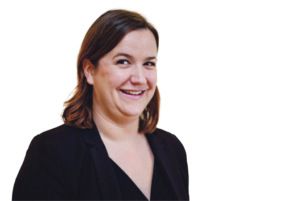Opinion
You’re Still Here: We are talking about billions
Kelly Draper
This article is more than 9 years old.

When the Panama Paper scandal hit, it turned out that Danish banks had been involved (photo: Pixabay)
How good are your Danish numbers? Mine are still pretty shaky. While I was researching for this, I had to double-check one word and I could not believe my eyes. Milliard means a billion.
Hell of a hit
The current government’s newest budget contains something called a ‘reprioritisation contribution’. This is the requirement that munipalities cut their budgets by 1 percent each year over the next three years. The money saved might come back to the municipalities, but it is really up to the government to decide what to do with the money. They could give it out as tax breaks, if they so desired.
This figure does not sound like a huge deal, but if you look at the total budgets of municipalities, that is where the word milliard comes into play. Next year, 1 percent is 2.4 billion kroner. In three years’ time, it could be up to 7 billion kroner.
Broken promise
I know a lot of people move to Denmark in the summer, so here is a little primer to get you up to speed. In the last election, as is usual in Danish politics, there was no clear winner. The party with the most votes, the Socialdemokraterne, could not get enough support from other left-wing parties to form a coalition. The party that came second, Dansk Folkeparti, did not want to be in charge. The party that came third, Venstre, formed a coalition with other like-minded parties, including DF.
Where it gets complicated is this: Venstre are right of centre when it comes to economics and social policy but DF are socialist nationalists. By lending support to Venstre, they naturally have to make compromises on the socialism and tone down the nationalism.
One election promise of theirs, and something that many of their voters said attracted them, was of more growth – especially in provincial municipalities.
Reducing municipal budgets is negative growth. By supporting this repriorisation contribution, they are going back on their word.
Major blow
What would it mean for a municipality to lose 1 percent of their budget? Ever since the start of the financial crisis in 2008, Danish public services have been cutting back. Further reductions would necessarily involve making more people redundant and having the remainder do more with less.
Municipalities pay for a lot of public services: childcare, schools and care for vulnerable adults are major expenditures. Cutting back by 2.4 billion kroner is going to reduce the quality. All the things that expats love to boast to their buddies back home about Denmark are about to take a major hit.
When the Panama Paper scandal hit, it turned out that Danish banks had been involved. If rich individuals and corporations were not allowed to hide their income from the tax authorities, the municipalities could afford to have a safe level of care workers and provide decent schools. If DF were serious about their election promises, this would surely have already happened.

About
Kelly Draper
Kelly Draper is a British teacher who came to Denmark for work. She acts informally as a critical friend to Denmark. This has not gone down particularly well with Danes, who often tell her she should like it or leave it. Her blog is at adventuresandjapes.wordpress.com.










































